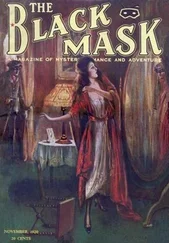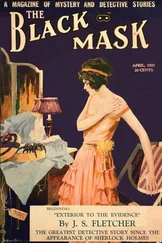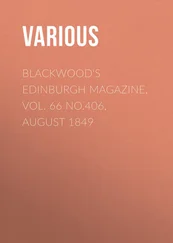J. Thorne - The Black Mask Magazine (Vol. 1, No. 5 - August 1920)
Здесь есть возможность читать онлайн «J. Thorne - The Black Mask Magazine (Vol. 1, No. 5 - August 1920)» весь текст электронной книги совершенно бесплатно (целиком полную версию без сокращений). В некоторых случаях можно слушать аудио, скачать через торрент в формате fb2 и присутствует краткое содержание. Город: New York, Год выпуска: 1920, Издательство: Pro-distributors Publishing Company, Жанр: Детектив, на английском языке. Описание произведения, (предисловие) а так же отзывы посетителей доступны на портале библиотеки ЛибКат.
- Название:The Black Mask Magazine (Vol. 1, No. 5 - August 1920)
- Автор:
- Издательство:Pro-distributors Publishing Company
- Жанр:
- Год:1920
- Город:New York
- ISBN:нет данных
- Рейтинг книги:4 / 5. Голосов: 1
-
Избранное:Добавить в избранное
- Отзывы:
-
Ваша оценка:
- 80
- 1
- 2
- 3
- 4
- 5
The Black Mask Magazine (Vol. 1, No. 5 - August 1920): краткое содержание, описание и аннотация
Предлагаем к чтению аннотацию, описание, краткое содержание или предисловие (зависит от того, что написал сам автор книги «The Black Mask Magazine (Vol. 1, No. 5 - August 1920)»). Если вы не нашли необходимую информацию о книге — напишите в комментариях, мы постараемся отыскать её.
The Black Mask Magazine (Vol. 1, No. 5 - August 1920) — читать онлайн бесплатно полную книгу (весь текст) целиком
Ниже представлен текст книги, разбитый по страницам. Система сохранения места последней прочитанной страницы, позволяет с удобством читать онлайн бесплатно книгу «The Black Mask Magazine (Vol. 1, No. 5 - August 1920)», без необходимости каждый раз заново искать на чём Вы остановились. Поставьте закладку, и сможете в любой момент перейти на страницу, на которой закончили чтение.
Интервал:
Закладка:
The Black Mask Magazine (Vol. 1, No. 5 — August 1920)
by F. M. Osborne (editor)

The Man Who Was Seven
(A Complete Novelette)
by J. Frederic Thorne
Chapter I
A man cannot be in two places at the same time.
That is a law of physics — isn't it?
But how about the other law, of evidence, and your own senses? If you saw and heard a man in that impossible situation or condition, which would you believe, the law or your own eyes and ears?
"But the thing is impossible!"
So? Then how about this:
On one of those fine Italian spring mornings that pass for summer in the Puget Sound country, there entered the Savoy Hotel, Seattle, a man who ordinarily would not call for specific description, but who, for the sake of this argument, we need to identify particularly.
He stood out from the world about five feet eleven inches, weighed approximately one hundred and sixty to one hundred and seventy pounds, was apparently in his late thirties or early forties, wore a neatly trimmed brown mustache and beard of the cut known as Vandyke, spectacles with large, rimless, egg-shaped lenses, a soft black broad-brimmed hat, blue serge suit with double-breasted coat, black tie, low tan shoes, carried a light-weight gray overcoat, a black Gladstone bag and a sole-leather suitcase. He walked with a slight but noticeable limp of the left leg.
Relinquishing coat and bags to a bellboy, the newcomer nodded pleasantly to the clerk and registered, in a distinctly legible hand, the name "Samuel Smith," without address. This done, he set his watch by that of the clerk — it was just 10:02 a. m. — received his key and followed the bell-boy to room 314. Tipping the boy generously but not lavishly, he asked that the hotel valet and public stenographer be sent to him. To the one he gave a suit of clothes for pressing; to the other he dictated two short letters. Returning to the lobby, he bought a dollar's worth of cigars, asked to be directed to the Totem National Bank, glanced at his watch and, commenting audibly upon the time, 10:48, walked out into the crowd on Second Avenue.
Nothing remarkable or unusual about that, nothing that does not occur, in a general way, in a thousand hotels all over the land every day in the year?
True. But wait a moment. The case is not stated yet.
On that same fine Italian spring morning of the same day, in this same city of Seattle, Washington, there entered the Butler Hotel, a man who ordinarily would not call for specific description, but who, for the sake of this argument, we need to identify particularly.
He stood out from the world about five feet eleven inches, weighed approximately one hundred and sixty to one hundred and seventy pounds, was apparently in his late thirties or early forties, wore a neatly trimmed brown mustache and beard of the cut known as Vandyke, spectacles with large egg-shaped lenses, black tie, low tan shoes, blue serge suit with double-breasted coat, a soft black broad-brimmed hat, carried a light weight gray overcoat, a black Gladstone bag and sole-leather suitcase. He walked with a slight but noticeable limp of the left leg.
Relinquishing coat and bags to a bellboy, the newcomer nodded pleasantly to the clerk and registered, in a distinctly legible hand, the name "Samuel Smith," without address. This done, he set his watch by that of the clerk — it was just 10:02 A. M. — received his key and followed the bell-boy to room 264. Tipping the boy generously but not lavishly, he asked that the hotel valet and public stenographer be sent to him. To the one he gave a suit of clothes for pressing; to the other dictated two short letters. Returning to the lobby, he bought a dollar's worth of cigars, asked to be directed to the Totem National Bank, glanced at his watch and commented audibly upon the time, 10:48, and walked out into the crowded street.
That makes it just a little more unusual — eh, what? But don't be impatient or jump at conclusions. There is more to come.
On one of those fine Italian spring mornings that pass for summer in the Puget Sound country there entered the Rainier Grand Hotel, Seattle, a man who ordinarily—
Well, there's no use going through it all again in the style of "One dark and stormy night in the Carpathian mountains a robber band gathered about their chief—"
To clinch the matter, a man of exactly the same appearance as described above entered, at the same hour and minute, signed the same name in the same handwriting, did exactly the same things, made the same remarks, and left at the same minute, not only the Savoy and Butler, but also the Rainier Grand, Washington, Lincoln, Seattle and Frye Hotels.
Hotel clerks are observing people, as men go, and each of them, of all seven hotels, not only stated the facts as here set down but swore to them, with many additional and confirmatory details you have not been bothered with.
Talk about your alibis! Most men are content with proving that they were at some one other place at a given time, but here was a man — if the singular pronoun be correct — who was in seven different places at the same time, with some thirty-odd reputable witnesses able to testify to the fact, if it was a fact.
That sort of thing isn't an alibi — it is the fourth dimension.
Chapter II
You never would have taken Jim Carranaugh for a detective. He was too obvious. Entirely too big. Too big by a number of inches, both ways.
To be sure, he could and had, by strenuous starvation, trained down to two hundred and eighty pounds; also, he had reached four hundred and one. Some place between these two extremes might be called normal, if Jim could be called a normal human at any time. Four inches and a half above six feet and almost an equal distance around his equator makes a fairly sizable man, so it is no wonder he attracted and held attention wherever he went.
But for all his size, Carranaugh was nimble of hand and foot as well as of wit, and could catch a car or a culprit as readily as the point of a joke. His command of polyglot American was the marvel and joy of his friends. The English language could not be broken into too small or too irregular pieces to escape his power of mimicry. Had he not been the able detective he was, he would have made a rare character actor; had he not been so good an actor he might not have been so efficient an officer of the law.
Chapter III
The Totem National Bank of Seattle occupies a one-story building of its own just off Pioneer Square in the older part of the city, close to the wholesale and commission firms, warehouses and shipping interests that form the bulk of its depositors.
Westward to the present shore or wharfline is all made ground. The lower layers of this are, or were, sawdust and slabs from the sawmills that were one of the earliest industries of the little town that was to become a great city. To this substratum was added the refuse of the growing community, until finally the casual and indeterminate merged into the planned and ordered earth-and-stone fill upon which paved streets and huge buildings rest.
The outer and western edge of this district still is, however, in more or less of its earlier formative state, piled and planked over for much of the area between Western Avenue and Elliott Bay. Beneath these streets and their wooden structures, the rising and falling tides slosh about and the industrious toredo lunches on fir and spruce with creosote dressing.
On a certain summer Monday morning the steamship Bertha arrived at her dock in Seattle, bringing from Alaska via Skagway a shipment of $200,000 in gold — bars, nuggets and dust — consigned to the Totem National Bank. As was sometimes the custom in those days, this gold was displayed heaped up in the bank's windows to satisfy the curiosity, whet the avaricious appetite and inspire the confidence of passersby.
Читать дальшеИнтервал:
Закладка:
Похожие книги на «The Black Mask Magazine (Vol. 1, No. 5 - August 1920)»
Представляем Вашему вниманию похожие книги на «The Black Mask Magazine (Vol. 1, No. 5 - August 1920)» списком для выбора. Мы отобрали схожую по названию и смыслу литературу в надежде предоставить читателям больше вариантов отыскать новые, интересные, ещё непрочитанные произведения.
Обсуждение, отзывы о книге «The Black Mask Magazine (Vol. 1, No. 5 - August 1920)» и просто собственные мнения читателей. Оставьте ваши комментарии, напишите, что Вы думаете о произведении, его смысле или главных героях. Укажите что конкретно понравилось, а что нет, и почему Вы так считаете.












